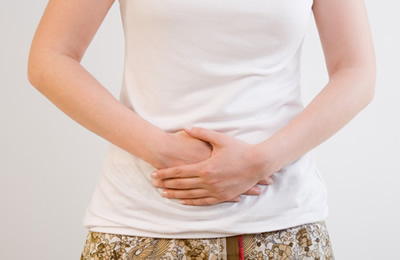Why Do Periods Cause Bloating?
There is a wide variety of signs and symptoms associated with prior to, during, and after menstrual periods. And bloating is one of them. However, this can vary from woman to woman. While some say that their period is followed with lots of uncomfortable symptoms, others say that there are almost no major symptoms (except menstrual flow) that they experience.
Abdominal bloating is not the single symptom associated with menstrual periods.
As noted before, a woman’s menstrual flow can be followed with a long list of different signs, both physical and emotional signs. These may include [1]:
- Digestive problems, especially such as diarrhea or constipation.
- Few change in breast, such as breast tenderness.
- Gaining some pound of weight. It is usually temporary because typically the weight gain is caused by the fluid retention.
- Dizziness or even sometime headache.
- Acne outbreaks.
- Low back pain.
- Muscle /joint pain.
- Easier to get tired.
- Poor or difficulty concentration.
- Anger, irritability, or mood swings.
- Changes in appetite. Women with PMS (premenstrual syndrome) tend to have food cravings.
- Changes in sleep. Some discomfort symptoms mentioned above may make you become difficult to fall asleep or they may also wake you up in the middle of night.
- Social withdrawal may also occur, particularly for those who have very uncomfortable symptoms of PMS.
It seems that there are a wide range of signs associated with PMS. But actually most women have only a few of these signs in the days prior to, during, and after period!
Unfortunately, there is still no clearly explanation for the answer of that question. However, there are some possible reasons why bloating can occur in some women with menstruation.
In general, you will experience bloating when there is gas build up in your gastric and intestine – particularly if this gas is not enough to naturally pass through flatulence or belching.
Sometime this fill-up discomfort can be followed with abdominal pain. This pain can be mild or sharp or dull. But it usually will improve on its own after taking a bowel movement or passing gas.
While the hormones (particularly for the balance of estrogen and progesterone) play a key role in regulating the women’s menstrual cycle, experts also believe that it is the major reason behind the menstrual symptoms, including for abdominal bloating.
Signs of PMS change with the cyclic fluctuations of hormones, and typically will disappear with menopause.
Women with hormonal imbalance are at greater risk of having a high stress. And bloating may also be related with stress. Furthermore, stress also can aggravate the symptoms of PMS.
While the cyclic of hormonal fluctuation is the major concern – still, foods that you eat also can play a key role. The following are foods that can be potential to cause abdominal bloating:
- Fatty foods! They can increase the fullness sensation and delay the stomach emptying.
- Gas-producing foods such as lettuce, carbonated drinks, broccoli, Brussels sprouts, baked beans, peaches, and cabbage.
Normally, eating some of these foods doesn’t mean that you will definitely have bloating. But you should not consume them too much, particularly when you are having abdominal bloating.
Some studies are continuously going to observe the exactly cause of symptoms related with PMS including bloating.
Instead of waiting for the clearly answer of why period can lead to bloating, you can improve the problem with some of the following self-management strategies [2]:
Fatty foods and gas-producing foods should be restricted, as noted before.
Moreover, re-check the intake of your caffeine, salt, sugar, and alcohol – make sure to consume them in moderation! Though they may not be directly linked with bloating, but they can affect and aggravate other symptoms of PMS.
Make sure you get plenty of calcium, vitamin E, vitamin B6, potassium, and magnesium. This is important to help you get the right balance of minerals and vitamins.
And avoid diuretics, because they can deplete the amount of potassium in the body.




